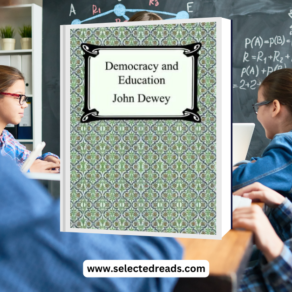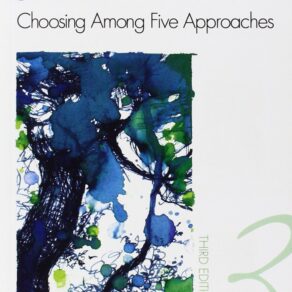“Experience and Education,” authored by John Dewey, is considered one of the most influential works on education from the twentieth century. As a prominent educational theorist, Dewey wrote this book more than two decades after his seminal work “Democracy and Education,” to address the shortcomings of both traditional and progressive education systems and offer a new perspective on how education should be approached.
Dewey’s intervening experience with progressive schools and the criticisms his theories had received led him to reformulate his ideas. He argued that both traditional and progressive education were inadequate and miseducative, as neither system effectively applied the principles of a well-developed philosophy of experience.
Traditional education, with its focus on rote memorization and rigid structure, did not foster creativity and critical thinking. On the other hand, progressive education, while emphasizing experiential learning, often lacked structure and direction.
In this book, Dewey emphasizes the need for a philosophy of experience, which serves as the foundation for his educational approach. He urges educators to focus on the deeper and broader issues of education rather than getting caught up in divisive educational movements or “isms” like progressivism.
His philosophy seeks to establish an American educational system that respects diverse sources of experience, offering a learning environment that is both historical and social, orderly and dynamic.
Dewey’s ideas for a philosophy of experience revolve around four key concepts:
- Continuity: Learning should be an ongoing process that builds upon prior experiences, fostering a sense of connection between past, present, and future learning.
- Interaction: Education should emphasize the interplay between the individual learner and their environment, recognizing that learning is a product of this interaction.
- Freedom: Learners should be given the autonomy to explore their interests and develop their unique abilities, within a structured framework that guides them towards meaningful learning outcomes.
- Democracy: Education should cultivate a sense of social responsibility and promote democratic values, preparing students to become active and engaged citizens.
By integrating these concepts, Dewey envisions an educational system that goes beyond the limitations of traditional and progressive approaches, fostering students who are well-rounded, critical thinkers, capable of adapting to a rapidly changing world. In “Experience and Education,” John Dewey presents a compelling vision of education rooted in the philosophy of experience, which remains relevant and influential in shaping contemporary educational thought and practice.
Main takeaways
“Experience and Education” by John Dewey offers valuable insights into educational philosophy and presents a vision for an educational system that transcends the limitations of traditional and progressive approaches. The main takeaways from the book include:
- Critique of Traditional and Progressive Education: Dewey highlights the shortcomings of both traditional and progressive education systems, arguing that neither applies the principles of a carefully developed philosophy of experience, and as a result, both are miseducative.
- Philosophy of Experience: Dewey proposes a philosophy of experience as the foundation for a new educational approach, emphasizing the need for continuity, interaction, freedom, and democracy in education.
- Continuity and Interaction: Learning should be an ongoing process that builds on prior experiences and emphasizes the interaction between the individual learner and their environment, recognizing that learning is a product of this relationship.
- Freedom and Structure: Dewey advocates for a balance between learner autonomy and a structured framework that guides students towards meaningful learning outcomes, allowing them to explore their interests and develop their unique abilities.
- Democratic Education: Education should promote democratic values and cultivate a sense of social responsibility, preparing students to become active and engaged citizens in a democratic society.
- Holistic and Adaptive Learning: Dewey’s vision of education fosters well-rounded, critical thinkers who are capable of adapting to a rapidly changing world, going beyond the limitations of traditional and progressive approaches.
- Focus on Deeper Issues: Dewey urges educators to think in terms of deeper and broader issues in education rather than being confined by divisive educational movements or “isms,” such as progressivism.
These takeaways from “Experience and Education” highlight John Dewey’s influential ideas on educational philosophy, which continue to shape contemporary educational thought and practice.
Related: Popular John Dewey Quotes
John Dewey Experience and Education Quotes
Here are some popular quotes from John Dewey’s book Experience and Education, popular as rated by readers in Goodreads.
- “The most important attitude that can be formed is that of desire to go on learning.” ― John Dewey, Experience and Education
- “We always live at the time we live and not at some other time, and only by extracting at each present time the full meaning of each present experience are we prepared for doing the same thing in the future.” ― John Dewey, Experience and Education
- “There is no such thing as educational value in the abstract. The notion that some subjects and methods and that acquaintance with certain facts and truths possess educational value in and of themselves is the reason why traditional education reduced the material of education so largely to a diet of predigested materials.” ― John Dewey, Experience and Education
- “Collateral learning in the way of formation of enduring attitudes, of likes and dislikes, may be and often is much more important than the spelling lesson or lesson in geography or history that is learned. For these attitudes are fundamentally what count in the future. The most important attitude that can be formed is that of desire to go on learning.” ― John Dewey, Experience and Education
- “Preparation” is a treacherous idea. In a certain sense every experience should do something to prepare a person for later experiences of a deeper and more expansive quality. That is the very meaning of growth, continuity, reconstruction of experience.” ― John Dewey, Experience and Education
- “It is [the teacher’s] business to be on the alert to see what attitudes and habitual tendencies are being created. In this direction he[sic] must, if he is an educator, be able to judge what attitudes are actually conducive to continued growth and what are detrimental. He must, in addition, have that sympathetic understanding of individuals as individuals which gives him an idea of what is actually going on in the minds of those who are learning.” ― John Dewey, Experience and Education
- “The scientific method is the only authentic means at our command for getting at the significance of our everyday experiences of the world in which we live…scientific method provides a working pattern of the way in which and conditions under which experiences are used to lead ever onward and outward.” ― John Dewey, Experience and Education
- “A genuine purpose always starts with an impulse. Obstruction of the immediate execution of an impulse converts it into a desire. Nevertheless neither impulse nor desire is itself a purpose. A purpose is an end-view. That is, it involves foresight of the consequences which will result from acting upon impulse.”
― John Dewey, Experience and Education - “There is, I think, no point in the philosophy of progressive education which is sounder than its emphasis upon the importance of the participation of the learner in the formation of the purposes which direct his [sic] activities in the learning process, just as there is no defect in traditional education greater than its failure to secure the active cooperation of the pupil in construction of the purposes involved in his studying.” ― John Dewey, Experience and Education
Final thoughts
Reflecting on John Dewey’s “Experience and Education,” we grasp a transformative vision for education that moves beyond the binary of traditional versus progressive methods. Dewey’s philosophy, grounded in the richness of experience, calls for an education system that not only imparts knowledge but also cultivates a lifelong desire for learning, and prepares individuals for active participation in a democratic society.
Through the integration of continuity, interaction, freedom, and democracy in educational practices, Dewey challenges us to create learning environments where students are not mere recipients of pre-digested information but active constructors of their own educative experiences.
This book is not just a critique but a roadmap to an education system that adapts to the complexities of the modern world, ensuring that the act of learning remains as dynamic and expansive as life itself.
I hope you find John Dewey Experience and Education summary helpful!





